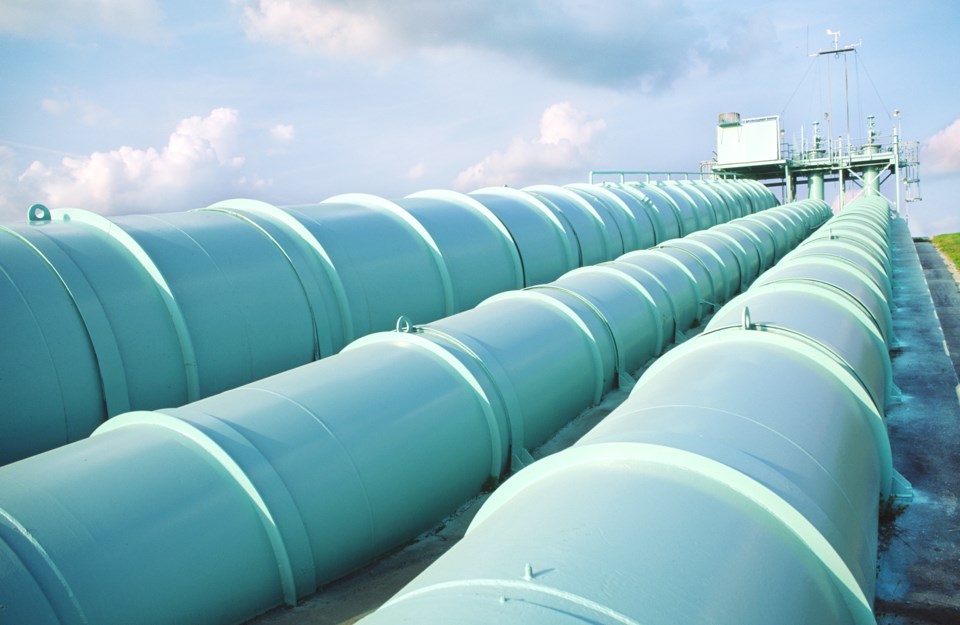The federal government has announced the Trans Mountain pipeline expansion will proceed. The project involves twinning the existing oil pipeline from Edmonton to Burnaby, more than doubling the present capacity.
Whether that settles the matter is anyone’s guess. The original proponent, Kinder Morgan, bowed out in May 2018, after years of delay.
Concerned that Canada should not appear hostile to foreign investors, the federal government purchased the project for $4.5 billion and announced it would seek a new owner.
However, last August the Federal Court of Appeal introduced further uncertainty by overturning the National Energy Board’s approval of the pipeline.
The court cited inadequate consultation with First Nations, among its other concerns.
That led the minister responsible, Amarjeet Sohi, to hold additional talks with Aboriginal groups. Today’s announcement brings that process to an end.
Yet, after a search lasting more than a year, no new owner has been found, and it seems inevitable that further court challenges will take place.
That Ottawa would press on with the project was perhaps inevitable. Pulling out would have infuriated Alberta, where talk of seceding can already be heard.
Some voters in western Canada still remember former prime minister Pierre Trudeau’s National Energy Program, which levied new taxes on western oil.
That prompted outrage on the Prairies, where the program was taken as evidence that central Canada cared little about other parts of the country.
Could Justin Trudeau escape similar condemnation if he abandoned Trans Mountain?
In addition, with a federal election pending this fall, how would it appear if the prime minister had poured $4.5 billion down a dry hole?
B.C. Premier John Horgan faced a similar dilemma when he approved B.C. Hydro’s Site C dam, despite widespread opposition in his own party.
This is an enormous risk to take. Green party support is mounting in B.C., with record donations pouring in.
The provincial Greens raised more than $710,000 last year, in itself a record, and unheard of during a period with no election taking place. Nothing is more calculated to incite anger among Green voters than pushing on with Trans Mountain.
Then, there is Quebec to consider. La belle province has been a traditional stronghold for the federal Liberals.
But Quebec Premier François Legault has made clear his opposition to new pipelines. What price will Trudeau pay in a province where his party currently holds 39 seats?
There are, however, some potential escape hatches for the prime minister. Two Indigenous consortiums, one in B.C., the other in Alberta, are trying to muster support for buying shares in the pipeline.
If this were to happen, it would mute much of the opposition. To date, Aboriginal leaders have been at the forefront of attempts to halt the project.
But if First Nations groups lend their support, it becomes much more difficult to rise in protest. Trudeau promised to pursue this option with the groups involved. He also committed to allocating any profits that come from the pipeline toward cleaner energy sources.
There is, additionally, the political reality that a majority of Canadians support the project. Of course, that could change. This is a volatile topic.
But last year, an Ipsos poll showed 56 per cent of respondents in favour, with only 24 per cent against, nationwide. Even in B.C. there was majority support, with 55 per cent backing the pipeline, and 37 per cent opposing.
The numbers were closer in Quebec, where 42 per cent were in favour of the project, while 36 per cent were not.
A realistic assessment might be that the prime minister, trapped in a no-win situation, has made the best choice available.
Whether the pipeline is ever expanded remains a good question. A federal official said the government expects construction work to begin this year, although further legal disputes appear likely.
But for now, an ongoing distraction has been sidelined. With a federal election only four months away, that was a political necessity.



